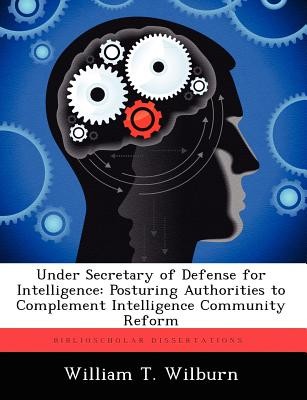
- We will send in 10–14 business days.
- Author: William T Wilburn
- Publisher: BiblioScholar
- ISBN-10: 1249428319
- ISBN-13: 9781249428312
- Format: 18.9 x 24.6 x 0.8 cm, softcover
- Language: English
- SAVE -10% with code: EXTRA
Reviews
Description
In the aftermath of the 9/11 terrorist attacks, policymakers and the American public demanded to know the causes that led to its nation's intelligence failures. The 9-11 Commission, along with the temporarily constituted Joint Intelligence Committees of the U.S. House and Senate, recommended a new head of national intelligence, with greater powers than its predecessor, the Director of Central Intelligence. Simultaneously, Secretary of Defense Donald Rumsfeld successfully lobbied Congress to establish the Under Secretary of Defense for Intelligence USD(I), a new position intended to address chronic problems confronting the defense intelligence. In 2004, Congress passed the Intelligence Reform and Terrorism Prevention Act (IRTPA), which established the Director of National Intelligence (DNI). IRTPA presented a number of challenges in terms of defining the USD(I)'s roles. In particular, the statutory authorities of the newly created DNI directly challenged the USD(I)'s ability to define its roles and clearly interfered with USD(I)'s momentum to expand its intelligence responsibilities. The purpose of this study was to determine the appropriate role of the USD(I) and examine the extent to which the USD(I)'s authorities should be scoped to ensure proper coexistence with the DNI and IC. This study discovered that USD(I) redundancies, overlaps, and conflicts ranging from less dangerous infractions like HUMINT to the more severe conflicts pertaining to distribution of national intelligence resources, compromise IC synergy and have the potential to negatively impact national security.
EXTRA 10 % discount with code: EXTRA
The promotion ends in 17d.04:20:30
The discount code is valid when purchasing from 10 €. Discounts do not stack.
- Author: William T Wilburn
- Publisher: BiblioScholar
- ISBN-10: 1249428319
- ISBN-13: 9781249428312
- Format: 18.9 x 24.6 x 0.8 cm, softcover
- Language: English English
In the aftermath of the 9/11 terrorist attacks, policymakers and the American public demanded to know the causes that led to its nation's intelligence failures. The 9-11 Commission, along with the temporarily constituted Joint Intelligence Committees of the U.S. House and Senate, recommended a new head of national intelligence, with greater powers than its predecessor, the Director of Central Intelligence. Simultaneously, Secretary of Defense Donald Rumsfeld successfully lobbied Congress to establish the Under Secretary of Defense for Intelligence USD(I), a new position intended to address chronic problems confronting the defense intelligence. In 2004, Congress passed the Intelligence Reform and Terrorism Prevention Act (IRTPA), which established the Director of National Intelligence (DNI). IRTPA presented a number of challenges in terms of defining the USD(I)'s roles. In particular, the statutory authorities of the newly created DNI directly challenged the USD(I)'s ability to define its roles and clearly interfered with USD(I)'s momentum to expand its intelligence responsibilities. The purpose of this study was to determine the appropriate role of the USD(I) and examine the extent to which the USD(I)'s authorities should be scoped to ensure proper coexistence with the DNI and IC. This study discovered that USD(I) redundancies, overlaps, and conflicts ranging from less dangerous infractions like HUMINT to the more severe conflicts pertaining to distribution of national intelligence resources, compromise IC synergy and have the potential to negatively impact national security.


Reviews